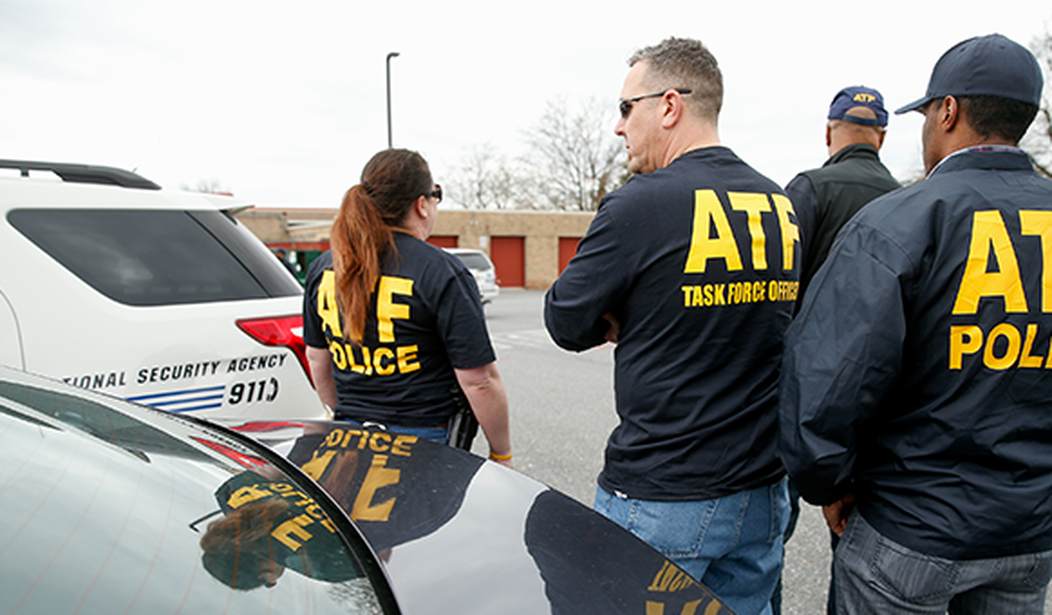The Bureau of Alcohol, Firearms, Tobacco, and Explosives has yet to adequately explain why it was necessary to send a heavily-armed tactical team to the home of a Little Rock, Arkansas airport executive who the agency believed was "engaged in the business" of dealing firearms without a license last year, but maybe we'll get some answers now that the agency is being sued by the widow of Brian Malinowski, who was shot and killed during the raid on his home.
Maer Malinowsk has filed a wrongful death suit over the March, 2024 raid, alleging that the agents who served a search warrant on the home engaged in "unreasonable and unlawful" actions, culminating in the death of her husband, who she says was killed while he was "acting in defense of her and their home."
From the complaint:
In the darkness of that morning, ATF forced entry into their home, broke down the door with a battering ram and, once inside, shot and killed Bryan Malinowski in front of his panic-stricken wife. The ATF predicated this ultimate seizure of his person on a federal search warrant sought and issued based on suspicion and belief that Mr. Malinowski, the Executive Director of the Bill and Hillary Clinton (Little Rock) National Airport with no criminal history or indication of being a threat, was acting as a firearms dealer without having secured a $200 firearms license. But the Constitution rightfully requires more of law enforcement, and is designed to prevent this very tragedy. The Constitution requires reasonableness and, specifically here, that Defendants both knock and announce their presence and purpose and wait a reasonable time before entry. The ATF failed to do so, resulting in an entirely predictable, needless and tragic outcome.
We've discussed this case quite a bit here at Bearing Arms, including with former Deputy Assistant Director and ATF whistleblower Peter Forcelli, who was flabbergasted that agents chose to serve the search warrant by sending ten carloads of federal and state law enforcement agents to the home in the pre-dawn hours instead of, for instance, waiting for Malinowski to leave for his job at the Little Rock airport. Malinowski wasn't suspected or accused of any kind of violent crime. He was under suspicion of selling too many firearms without obtaining a federal firearms license; a criminal offense, to be sure, but one that was made a top priority of the Biden administration, which expanded the definition of "engaged in the business" to include most gun owners who merely offered a gun for sale, regardless of whether or not it was ever actually sold.
Maer Malinowski's attorneys contend that mere seconds after agents covered up the Malinowskis' doorbell camera with tape, agents pried open the locked, glass storm doors and broke down the inner, wooden doors with a battering ram to gain entry to the home.
Less than 20 seconds later, at 6:03:46 a.m., gunshots rang out, and Bryan Malinowski crumpled to the ground, shot in the head by an ATF agent following an exchange of gunfire.
Bryan had scrambled out of bed and crept into the dark hallway with his gun to protect himself and his wife from whom he reasonably believed were intruders. He did not know that he was under investigation, much less that the people who broke down his front doors were law enforcement, because they failed to adequately knock and announce their presence and give him a reasonable time to wake up and come to the door.
As the lawsuit alleges, "ATF investigative officers would learn during their months long investigation leading up to Bryan's death that Bryan did not pose an immediate threat to their safety or the safety of others during the search; that Bryan had no criminal history or history of violence; that Bryan had never threatened law enforcement officers; and that Bryan's wife and dogs lived with him and would be present during a pre-dawn searchwarrant execution at the family home." Agents also allegedly knew that Malinowski worked in a "gun-free zone" at the Little Rock Airport, and that he wasn't expected to leave for work until at least 9 a.m.; broad daylight, in other words.
So why did agents decide to execute a "dynamic entry" of the home instead of just serving the search warrant at Malinowski's office, or while he was in his car on his way to work? In fact, the lawsuit alleges that the ATF had originally assembled its tactical team a week earlier, but called off the execution of the search warrant because Malinowski had left his home before 6 a.m. They could have conducted the search while Malinowski was away, but instead chose to wait until he and his wife could reasonably be assumed to be asleep in their beds.
Was Malinowski the victim of Joe Biden's war on gun owners and the firearms industry? Did the ATF do its due diligence to ensure that the search warrant was conducted in the most appropriate way to ensure the safety of both its agents and the subjects of the warrant? Will the Trump administration actively defend the actions of the agents who acted under former Director Steve Dettelbach's authority? And will any official be held accountable, even in a civil court, for Malinowski's untimely death? Time will tell, but it will be interesting, to say the least, to see what the first official response from the ATF and the individual law enforcement agents who've been sued will entail.









Join the conversation as a VIP Member